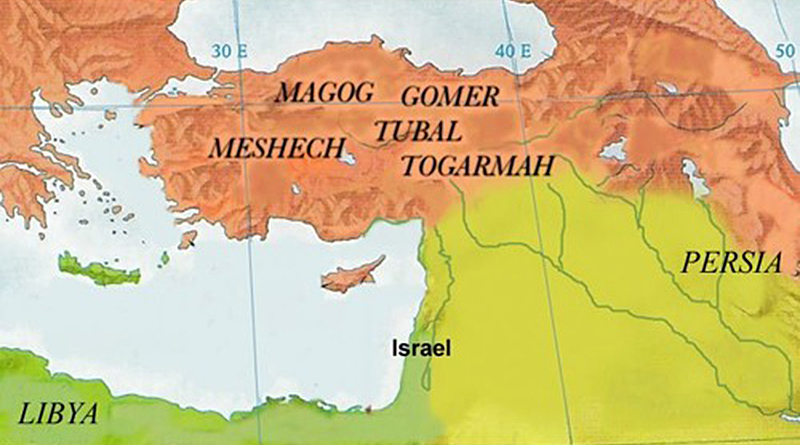P

In December of 2017, the state-run Turkish newspaper Yeni Safak ran an article calling for a united “army of Islam” to invade Israel. More recently, Turkish president Recep Tayyip Erdogan has also emerged as one of the most vocal opponents of President Trump’s decision to recognize Jerusalem as the undisputed capital of the Jewish State, and has even said that Muslims should embrace the cause of Jerusalem “to the death.”
By all accounts, Turkey has now emerged as one of the primary antagonists of Israel in the Middle East, which may come as a surprise to many people. Historically, Turkey has been an ally of Israel and the U.S., and one of the more “moderate” Muslim nations in the world, with a western-style democracy.
Turkey’s friendlier posture towards Israel began to shift in the late 1990s and early 2000s. At this time, the Islamic factions in Turkey gained a firmer foothold in Turkish politics, which eventually led to the election of now President Erdogan to the Prime Minister’s office in 2002. Erdogan is a fundamentalist Sunni Muslim through and through. He disdains democracy. One of his primary goals is to re-establish Turkey as the leader of a revived Ottoman Islamic Empire. Since coming to power, Erdogan has systematically silenced, jailed, or executed most of his opponents in the military, media, business sector and in academia.
Many of these recent developments in Turkey are a bit unsettling. Nevertheless, it is still important to recognize that the rise of Turkey as a global power does harmonize with certain key Bible prophecies related to what will take place in the Middle East before the return of Yeshua. In Ezekiel 38-39 Ezekiel specifically predicted that Turkey would become one of the primary geopolitical enemies of Israel in the last days.
Many people are familiar with Ezekiel 38-39. They know this prophecy speaks of a military invasion of Israel led by a figure known as “Gog of the land of Magog.” Unfortunately however, many prophecy teachers today erroneously connect Gog to Russia. Part of the reason for this is because in both the New American Standard and New King James versions of the Bible, “Gog” is not only said to come from “the land of Magog,” but is also further described as “the prince of Rosh, Meshech and Tubal” (Ez. 38:2). Because the word “Rosh” sounds similar to Russia, and because “Meshech and Tubal” sound similar to the Russian cities Moscow and Tobolsk, it has often been assumed in conservative prophecy circles that Gog must be a Russian.
In reality however, most scholars now recognize that Ezekiel 38:2 actually describes Gog as the “chief prince of Meshech and Tubal,” not the “prince of Rosh, Meshech and Tubal.” In other words, the Hebrew term rosh, which means, “head, chief, or foremost,” is modifying Gog’s title as a prince (nasi). It is not the name of a particular place, which in turn, rules out any possible association between Gog and Russia. The idea that Gog is actually the “chief (rosh) prince (nasi) of Meshech and Tubal” is found in the ESV, NIV, HCSB, TLV and JPS translations of the Bible.
Now that the association between Gog and Russia has mostly fallen out of favor among scholars, there is near unanimous agreement in scholarly Bible commentaries and Bible atlases that in Ezekiel’s day, Magog, Meshech and Tubal were all located in what is now modern Turkey.
For example:
- The Zondervan Illustrated Bible Dictionary states, “Magog (possibly meaning “the land of Gog”) was no doubt located in Asia Minor [Turkey] and may refer to Lydia.”
- Historian Edwin Yamauchi has also written, “Since the late nineteenth century, Assyrian texts have been available which locate Meshech (Mushku) and Tubal (Tabal) in central and eastern Anatolia [Turkey] respectively.”
-
4
-
1
- Show all



